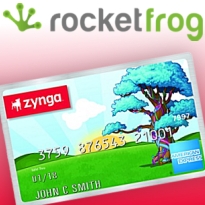 Shares in social media company Facebook lost even more value on Tuesday, slipping 8.9% to $31 – $7 below the $38 price the stock carried when it made its Nasdaq debut on Friday. It didn’t help that the Securities and Exchange Commission announced it was looking into the fact that the stock’s underwriters – Morgan Stanley, JPMorgan Chase and Goldman Sachs – all reduced their revenue forecasts for Facebook during the week-long roadshow that preceded the IPO. Reuters broke that news late Monday, and now the SEC is apparently curious why institutional investors were told about the revised expectations while retail investors weren’t afforded the same consideration.
Shares in social media company Facebook lost even more value on Tuesday, slipping 8.9% to $31 – $7 below the $38 price the stock carried when it made its Nasdaq debut on Friday. It didn’t help that the Securities and Exchange Commission announced it was looking into the fact that the stock’s underwriters – Morgan Stanley, JPMorgan Chase and Goldman Sachs – all reduced their revenue forecasts for Facebook during the week-long roadshow that preceded the IPO. Reuters broke that news late Monday, and now the SEC is apparently curious why institutional investors were told about the revised expectations while retail investors weren’t afforded the same consideration.
Facebook’s slide also continued to drag down tech stocks with an even passing relationship with Zuckerberg’s baby. Social gamers Zynga lost another 4% on Tuesday, closing at $6.80, down from $8.56 last Tuesday (15). So is this social media selloff a short-term ‘panicked herd’ affair or a sign of a deeper malaise regarding these companies’ ability to generate revenue? The switch from social gaming to real-money online gambling has been touted as a revenue panacea, but as Japan’s ‘kompu gacha’ affair proved, that particular path to profits is akin to walking a razor’s edge, at least in the eyes of regulators.
ROCKETFROG MAKES APPEAL TO NON-VIRTUAL GAMERS
The next American firm to push the boundaries is Los Angeles-based RocketFrog, founded in 2010 by Matthew Osborn, Uri Kozai and Brett Calapp (former CEO of subscription-based network Centaurus Games, which PartyGaming purchased in 2010). RocketFrog operates daily free-money poker, blackjack and slots tournaments on Facebook. A rotating slate of advertisers – including Amazon and Avril Lavigne’s clothing line Abbey Dawn – acts as sponsors for these tournaments, offering up online gift codes and cards as prizes.
Calapp said RocketFrog would appeal to players “who could not fathom the idea of playing for nothing, but are ecstatic about the opportunity to play for gift cards from top brands, new albums from their favorite artists or a ticket to the movies.” Given that gift cards are essentially digital money, we suspect RocketFrog’s innovation will eventually create a secondary redemption market similar to the one that allows Japan’s pachinko parlors to plausibly deny their shiny metal balls are redeemable for real cash, but – nudge nudge, wink wink – the guy in the shop next door might be able to help you out.
ZYNGA AND AMEX PLANT A MONEY TREE
A slightly less daring initiative has Zynga pairing up with American Express on a FarmVille prepaid debit card. In a nod to the game, card applicants have to visit the Amex prepaid Serve platform and plant a Serve Money Tree on their farms. (You can’t see us, but we’re rolling our virtual eyes.) Once their actual card arrives in the mail, users earn FarmVille rewards (instead of, say, airmiles) on their real-world purchases.
The program is expected to expand to other Zynga ‘Ville’ games in short order and Amex president of enterprise growth Dan Schulman told AllThingsD that the Zynga Serve Rewards program will extend to other real-world businesses, citing an example in which FarmVille players who plant coffee crops might get discounts redeemable at their local Starbucks. Schulman called this a “closed loop for Zynga players. It’s so very different than what anyone else has done.” Zynga CMO Jeff Karp said the goal was “to build and scale the blurring of the lines between the virtual world and the physical world.”